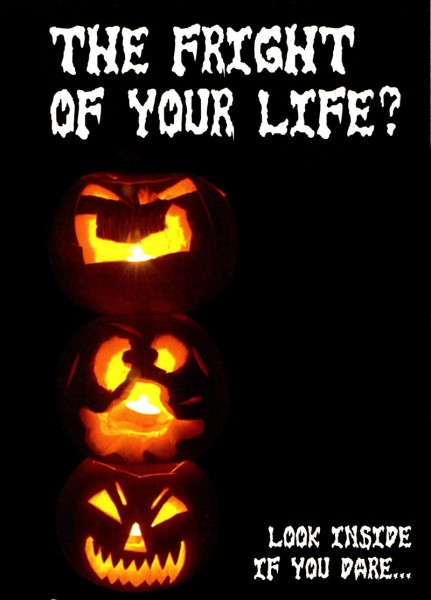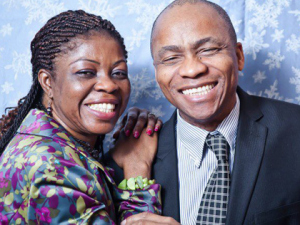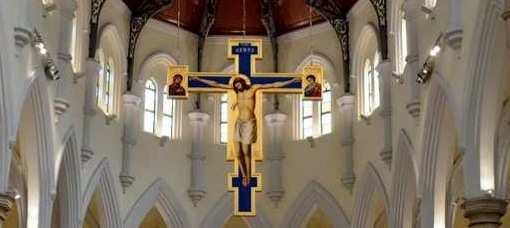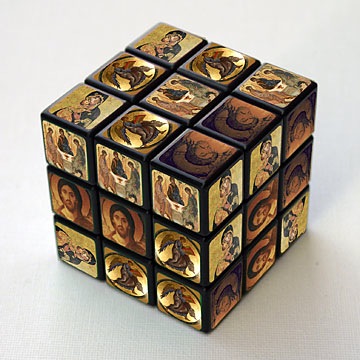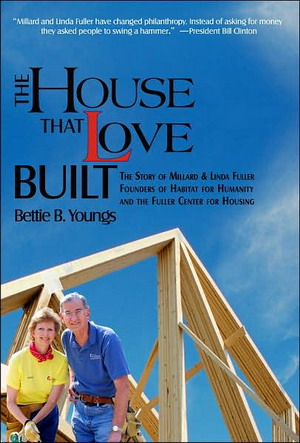by Doug LeBlanc
Editor, Anglican Voice
posted April 21, 1999
NEW YORK — Activists will press the Episcopal Church’s General Convention in 2000 to authorize Church blessings for gay couples, even as those activists debate among themselves what such blessings would signify.
About 200 people attended the second Beyond Inclusion conference held on April 15-18 at St. Bartholomew’s Episcopal Church in Manhattan.
Like the first Beyond Inclusion conference — held in April 1997 at All Saints Episcopal Church in Pasadena, Calif. — this year’s conference consisted of a few plenary papers and several smaller workshops.
Those who presented papers and those who responded with questions agreed that they should press on in their campaign for a blessing rite. The activists agreed less, however, on whether they seek a blessing of gay marriage, or a monogamy-free blessing.
The activists’ commitment to political action was most vivid during a workshop led by Kim Byham and Byron Rushing.
Byham, who has led Integrity’s pro-gay legislative efforts at General Convention since 1988, suggested that 2000 might be a time for turning the legislative cheek.
Legislation for blessing gay couples could easily pass the House of Deputies, but its chance of passing in both houses is “virtually nil,” Byham said.
“It might be a question of timing, about when we should cash in our chips,” Byham said. “It might catch the other side off guard, and it would put us in conformity with the House of Bishops.”
Conference participants were having none of Byham’s idea, which Byham said he raised strictly for the sake of discussion.
“We have always figured out a way to pray together and to vote,” said Rushing, a Convention deputy since 1973 and a member of the Massachusetts House of Representatives since 1982. “There is nothing wrong with politics. There is nothing wrong with voting.”
“I think we have to be stronger than ever, more courageous than ever and more direct in putting something before Convention,” said the Rev. Patricia Ackerman of New York, Director of Communications for Integrity, the Episcopal Church’s best-known gay caucus. “Marriage needs to be a right in more ways than one.”
“I think it’s important that we win this. I would like to see it in 2000. We do not welcome if we do not bless. It’s that simple,” said the Rev. Susan McGarry of Ann Arbor, Mich.
“This is not the time to go quiescent,” McGarry said. “The Right wants to make us Other so they can murder and they can kill us.”
Louie Crew, who founded Integrity as a newsletter in 1974, stressed that how the movement handles the debate is more important than the timing of a victory.
“I hope we will give compassion and love to those who disagree with us. I have met with the most outspoken of our opponents. I have not met one that wants to murder us,” Crew said. “If we feel they have done us wrong, they are already forgiven from the same source that we are forgiven.”
‘Not safe and easy’
Earlier in the conference, participants applauded suggestions that blessings should not, in the words of feminist author Mary Hunt, “limit our relational creativity.”
“For justice’s sake, we do not want to develop a model that merely mimics heterosexual marriage,” said the Rev. Dr. Renée Hill — Senior Associate for Peace and Justice at All Saints, Pasadena. Her remark drew vigorous applause.
“The issue should be access and choice, and not compulsion,” she said, receiving more applause.
“How open have our discussions been about the variety of lifestyles?” McGarry said in response to Hill’s address. “We’re really not talking about one way of living.”
Urvashi Vaid, Director of the National Gay and Lesbian Task Force Policy Institute, made a similar point during a panel discussion mostly devoted to broad political strategies.
“How do we make ourselves appealing when we really are unsettling to the heterosexist order?” she said. “We’re not a safe and easy movement. Our acceptance will require society to rethink sex, sexuality, patriarchy and family. . . .We can say all we want, ‘Include us, we’re just like you’ — but people hearing us know better, and we know better.”
The Rev. Canon Juan Oliver of New Jersey — a plenary speaker at the first Beyond Inclusion in 1997 — expressed concern that a blessing rite could denigrate other homosexual relationships.
“I don’t think we should be naive about ritual. The minute you enshrine something in liturgy, its opposite suffers,” he said.
Hill agreed: “One of my worries about making something official in the Prayer Book is, how does that become the master’s tool?”
Some critics of current marriage practices advocate that couples first have their marriage recognized by a government agency, such as a justice of the peace, then have the union blessed by the Church in a separate ceremony that has nothing to do with marriage licenses.
“We are constrained by marriage-ism,” Rushing said. “Clergy in the Episcopal Church need to get out of the business of being agents of the state.”
Mixed feelings on leaders
Both Presiding Bishop Frank Griswold and the House of Bishops drew some criticism during the conference — but some speakers defended Griswold as well.
The Rev. Michael Hopkins, President of Integrity, said in a sermon on April 15 that being at the Lambeth Conference “is a large part of why I joined with the leaders of Beyond Inclusion and The Oasis in reacting so strongly to the recent suggestion by the Presiding Bishop and the House of Bishops that we take a break from voting on issues related to sexual orientation.”
Hopkins said that suggestion conflicts with a 1976 General Convention resolution that says “Homosexual persons are children of God and, therefore, have a full and equal claim with all other persons upon the love, acceptance and pastoral concern and care of the Church.”
“I smell the closet,” Hopkins said. “I smell the Church reneging on its 1976 statement. This Church has had 25 years to figure out what calling homosexual persons ‘children of God’ means! I ask a simple question of the House of Bishops and the Episcopal Church: ‘What part of “full and equal claim on the love, acceptance and pastoral concern and care of the Church” do you not understand?'”
Juan Oliver said current thinking is that “either you fight or you’re nicey-nicey.”
“We should be prepared to redefine what it means to be good boys and girls,” he said. “I will not let anyone — not even the Presiding Bishop, not even the House of Deputies” make that definition.
“No one can determine what a good Juan Oliver is.”
Byham praised Griswold for his response to an open letter from seven archbishops (and a former archbishop), who asked the Presiding Bishop to bring the Episcopal Church into compliance with the Lambeth Conference resolution on sexuality.
In response, Griswold and all the members of his Council of Advice invited the archbishops to “come and see” how the Episcopal Church is “testing the spirits” on how to care for its homosexual parishioners.
“I don’t think it would have been possible to have had a better response to that letter,” Byham said. “It really was a brilliant way of calling their bluff.”
Comparing struggles
The Rev. Al Halverstadt Jr. and his wife, Susan Weeks, led a workshop on “Surviving in a Conservative Diocese,” based on their experiences in the Diocese of Colorado. Halverstadt is rector of St. Barnabas Episcopal Church in Denver.
Their workshop attracted participants from conservative dioceses, such as Dallas, Ft. Worth and Tennessee, but also from dioceses such as Connecticut, Indianapolis and Virginia.
A considerable portion of the workshop consisted of the same horror stories, motives-gauging and venting that occurs when conservatives compare scars with other conservatives.
Workshop participants complained about dioceses redirecting their funds away from the Episcopal Church Center, bishops using “shaming” techniques against vocal liberals and bishops who will not take a clear stand on either side of the sexuality debate.
Insisting on “the closet” (secrecy) for gay clergy is “screwing up our ability to spread the Gospel,” one priest from the Diocese of Dallas said in an angry moment.
Halverstadt eventually called on the workshop participants to see past their frustrations.
Halverstadt said he has celebrated ten blessing services for gay couples during his years in Denver.
“St. Barnabas has grown rather than diminished. A church in Boulder is going to do holy unions, and I can name two other priests who have done them — with the bishop’s knowledge,” he said. “I would like us to recognize that we can be a people of hope, and not get legislated into despair.”
Halverstadt spoke of “the depth of loving extreme,” which he defined as “being willing even to die for the other.”
“I think Beyond Inclusion simply has to do with the Cross,” he said. “Where do we meet the Cross in meeting with people who are different from us?”
“It’s a basic Christian responsibility,” said Katie Sherrod of Ft. Worth. “You can’t abuse your bishop and then expect your bishop to want to hear what you have to say.”
A quiet Alpha presence
Conservative and liberal tensions existed even in the location of this year’s Beyond Inclusion conference. St. Bartholomew’s, while affirming its homosexual parishioners, also is home to Alpha North America.
The Alpha Course, an evangelistic program in basic Christianity, came in for criticism during the 1997 Beyond Inclusion, and it bears an “Asbestos Alert” warning on Louie Crew’s comprehensive website.
Alpha’s central materials do not address homosexuality, but in one supplemental text, Searching Issues, Alpha Course author Nicky Gumbel endorses the idea that homosexuals can change their orientation. When Beyond Inclusion speakers or materials mentioned that idea at all, they rejected it as harmful, or as a tool of the religious right. (One flier, for instance, bore the title “The ‘Ex’ Files: Resources for Challenging the Ex-Gay Movement.”)
Roy Burrowes, a Beyond Inclusion participant and a member of the St. Bartholomew’s strategic development campaign, stood behind a table of Alpha fliers during one of the conference breaks.
Burrowes said no Beyond Inclusion participants had complained to him about Alpha. He added that St. Bartholomew’s adapts Alpha to the liberal urban parish’s ethos.
“We offer unconditional love,” Burrowes said about his parish, citing Jesus’ words in Luke 12 about the Great Commandment being the most important. “Preaching the sermon is one thing. Acting on it is another.”

